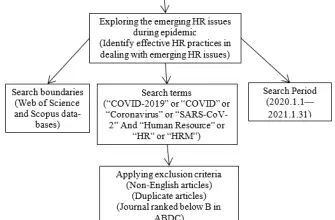In the realm of employment law, the concept of objective justification plays a pivotal role in determining the legitimacy of certain actions that may otherwise be perceived as discriminatory. Objective justification refers to the legal objective or aim defence that employers can use to justify examples of actions that may appear discriminatory on the surface. However, these actions must be proven to be a proportionate means of achieving a legitimate aim. This article will delve into the intricacies of objective justification, its implications in discrimination claims, and its relevance in the context of the Equality Act.
Understanding Objective Justification
Objective justification is a legal concept that allows employers to defend actions that may be perceived as discriminatory if they can prove that these actions were a proportionate means of achieving a legitimate aim. In other words, for aim defence, the employer must demonstrate that the action was necessary and there was no less discriminatory way to achieve the same result.
Objectively meaning, the action must be fair, reasonable, and justifiable in a broader context. The term ‘objective’ in this context refers to the fact that the justification must be based on rational and non-discriminatory grounds. In other words, the justification must be based on facts, not on subjective opinions or biases.
Objective Justification and Discrimination Claims
Objective justification can serve as a defence against discrimination claims under the Equality Act. The Equality Act defines direct discrimination as treating someone less favourably than others because of a protected characteristic such as age, disability, gender reassignment, marriage and civil partnership, pregnancy and maternity, race, religion or belief, sex, and sexual orientation.
An act of discrimination example could be an employer not promoting a female employee because she is pregnant. However, if the employer can prove that the decision was based on a legitimate aim – for example, the employee’s inability to perform certain tasks due to her pregnancy – and that there was no less discriminatory way to achieve this aim, the employer may be able to use objective justification as a defence.
Defining ‘Legitimate Aim’
The term ‘legitimate aim’ is a key component of objective justification. However, the Equality Act does not provide a definitive list of what constitutes a legitimate aim. Instead, it is left to the courts to decide on a case-by-case basis. Some examples of legitimate aims recognised by the courts include health and safety, the efficient running of an organisation, and the need to reduce costs.
However, it’s important to note that the aim must be genuine and not a pretext for discrimination. In other words, the employer cannot use a seemingly legitimate aim as a cover for discriminatory practices.
Proportionality Test
Even if an employer can demonstrate a legitimate aim, they must also pass the proportionality test. This means that the action taken must be a proportionate means of achieving the aim. In other words, the action must be necessary and there must be no less discriminatory way to achieve the same result.
The proportionality test is a balancing act between the discriminatory effect of the action and the importance of the aim. If the discriminatory effect outweighs the importance of the aim, the action will not be considered proportionate.
Conclusion
In conclusion, objective justification can serve as a legitimate defence against discrimination claims if the employer can prove that the action was a proportionate means of achieving a legitimate aim. However, this is not a straightforward task. The employer must pass the proportionality test and demonstrate that the aim was genuine and not a pretext for discrimination.
Understanding the concept of objective justification and its implications in discrimination claims is crucial for both employers and employees. It helps employers to make fair and justifiable decisions, and it provides employees with a means to challenge potentially discriminatory actions.









